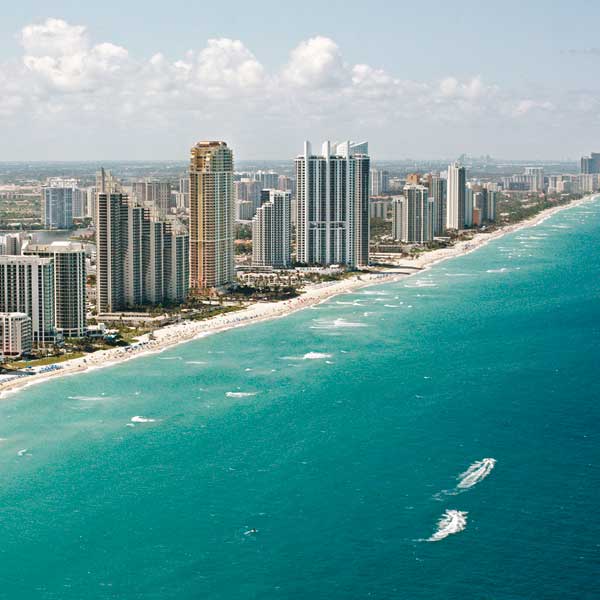in an experiment extraneous variables are controlled byin an experiment extraneous variables are controlled by
A controlled experiment is an experiment where the independent variable is systematically manipulated while its effects on the dependent variable are measured. Extraneous variables are an important element in the work of statisticians and scientists. Instructions. These types of variables can alter participants' behaviours . Aside from the independent and dependent variables, all variables that can impact the results should be controlled . Situational variables. Consistent environment. The researcher can operationalize (i.e. The controlled variable is the one that you keep constant. Situational variables - These are aspects of the environment that might affect the participant's behavior e.g. Time of day of testing. If a temperature is held constant during an experiment, it is controlled. Transcribed image text: In an experiment, how do scientists control for extraneous influences (non- manipulated variables) on the dependent variable? b. control of confounding variables. noise, temperature, lighting conditions, etc. D. 4. For each one, explain • what type it is (physical, social, personality, selection context), whether you see it as a confound how you could eliminate it or minimize it Jared and Molly . If a temperature is held constant during an experiment, it is controlled. d. the manipulation of a dependent variable. Example: Extraneous variables. Here are the four types for you to consider, with examples of each: 1. An extraneous variable is any uncontrolled factor that can influence the results of an experiment. Other examples of controlled variables could be an amount of light, using the same type of glassware, constant humidity, or duration of an experiment. In this article, we discuss the four different types of extraneous variables and how to control them. In an experiment, you manipulate an independent variable to study its effects on a dependent variable. Consistent environment. What is the control variable example? Examples of Controlled Variables Temperature is a common type of controlled variable. When possible, control variables should be identified, measured, and recorded. . Researchers accomplish this by holding the extraneous variables constant across all conditions of the . In a study on mental performance, you test whether wearing a white lab coat, your . The experiment setting. In an experiment, the independent variable is the parameter that is being changed. There are three key considerations to take when controlling extraneous variables: Participant variables - minimizing differences between participants (e.g. In your experiment, these extraneous variables can affect the science knowledge scores: Participant's major (e.g., STEM or humanities) Participant's interest in science. Extraneous variables are an important element in the work of statisticians and scientists. The common types of variables in an experiment with an example. RESEARCH METHODS EXAM QUESTIONS, ANSWERS & MARKS What is an experiment? noise, temperature, lighting conditions, etc. Each individual should be able to participate in an experiment in the exact same environment, e.g. Situational variables should be controlled so they are the same for all participants. In an experiment, you manipulate an independent variable to study its effects on a dependent variable. In a study on mental performance, you test whether wearing a white lab coat, your . ANS: An experiment is a research technique in which an IV is manipulated / and the effects of this on a DV are observed and measured. The extraneous variable of attrition occurs when the participant loses in the experiment due to many reasons such as illness, feels bored, dies due to some reason, or consciously withdraws themselves. their stage of development such as age, or ability such as IQ). Any means used to rule out possible threats to the validity In this article, we are going to discuss extraneous variables and how they . with the same lighting conditions, same noise levels, same temperature, and same number of potential . Some of these variables to watch out for is called extraneous variables.. Since this type of variable is one that may affect the relationship between the independent (controlled and manipulated by an experimenter) and dependent (measured by an experimenter) determinants, they can affect the results of an experiment. it's the output variable). ANS: Extraneous variables are all other variables apart from the IV and DV that need to be controlled in an experiment / e.g. If there is a systematic difference of these variables between the groups, confidently concluding whether the outcomes are a result of the independent variable . Examples of Controlled Variables. An experiment in which extraneous variables are controlled is said to be . / Other (extraneous) variables are held constant. In these conditions, the comparison is difficult to make because the new participant may don't have similar characteristics like the previous ones. If a control variable changes during an experiment, it may invalidate the correlation between the dependent and independent variables. A controlled experiment must have constants or conditions in an experiment that . An extraneous variable is a variable that has the potential to affect the . Control is defined as a. Example: Experimental study. Researcher variables - factors such as researcher behaviour, appearance or gender could affect participant responses, so . b. control of confounding variables. Extraneous Variable Definition. In a controlled experiment, an independent variable (the cause) is systematically manipulated and the dependent variable (the effect) is measured; any extraneous variables are controlled. To start with, it should be defined what are extraneous variables. In that case, the results can be severely inaccurate, leading to an improper. Situational Variables: these are variables of the environment that can affect a participant's behavior. There are four main ways to control for extraneous variables in an experiment: 1. But, the most common variables found in a science experiment include dependent, independent, and controlled. define) the variables being studied so they can be objectivity measured. D. 2. A controlled variable is one which the researcher holds constant (controls) during an experiment. d. the manipulation of a dependent variable. Suppose extraneous variables are not controlled in a research environment. Other examples of controlled variables could be an amount of light, using the same type of glassware, constant humidity, or duration of an experiment. The quantitative data can be analysed to see . In an experiment, extraneous (nonmanipulated) variables are controlled by: Making all aspects of the procedure identical for all conditions, except for the independent variable manipulation. Ob) using subjects who are similar to each other in nearly all respects. An extraneous variable is anything in a psychology experiment other than the independent and dependent variables. Example: Extraneous variables. In a controlled experiment, an independent variable (the cause) is systematically manipulated and the dependent variable (the effect) is measured; any extraneous variables are controlled. An independent variable is the variable that is changed or controlled in a scientific experiment to test the effects on the dependent variable.A dependent variable is the variable being tested and measured in a scientific experiment. Temperature is a common type of controlled variable. In your experiment, these extraneous variables can affect the science knowledge scores: Participant's major (e.g., STEM or humanities) Participant's interest in science. If an extraneous variable is not controlled, it can introduce bias into the results of an experiment. with the same lighting conditions, same noise levels, same temperature, and same number of potential . Oc) making all aspects of the procedure . Terms in this set (54) 1. a) having more than one experimenter interact with all subjects in the study. Extraneous variables can threaten the internal validity of your study by providing alternative explanations for your results. This helps you establish a correlational or causal relationship between your variables of interest. A dependent variable is the variable being tested and measured in a scientific experiment. Situational Variables. Even though they are not an independent variable, they still affect changes in the outcome of an experiment.. In an experiment, control over extraneous variables, such as the time of day or the temperature of the room, can be obtained by \\ a. using a double-blind experiment. The variables can present challenges and introduce errors, so it is important for experiments to control these extraneous factors. In this article, we discuss the four different types of extraneous variables and how to control them. A variable is any factor, trait, or condition that can exist in differing amounts or types. Only if you want to have a valid experiment d. Control conditions do not always include a level in which the independent variable is absent. To test your hypothesis, you need an experiment with a variable. These are aspects of the environment that might affect the participant's behavior, e.g. Situational variables are environmental factors, including background noise, the type of lighting the researcher is using, and the temperature of the room where the experiment is taking place. These are aspects of the environment that might affect the participant's behavior, e.g. A controlled experiment is an experiment where the independent variable is systematically manipulated while its effects on the dependent variable are measured. Examples include noise, lightning, the temperature of the room, etc. An extraneous variable is anything in a psychology experiment other than the independent and dependent variables. A-Z: . Furthermore, the presence of any extraneous variables are accounted for and are controlled. In this article, we are going to discuss extraneous variables and how they . define) the variables being studied so they can be objectivity measured. Related: 10 Jobs for Statistics Majors Even though they are not an independent variable, they still affect changes in the outcome of an experiment.. the testing environment, time of day, instructions to participants. There are four types of extraneous variables: There are four types of extraneous variables: 1. Extraneous variables are any variables that you are not intentionally studying in your experiment or test . How to Control Extraneous Variables. In a controlled experiment, an independent variable (the cause) is systematically manipulated and the dependent variable (the effect) is measured; any extraneous variables are controlled. Some of these variables to watch out for is called extraneous variables.. Situational Variables. How do you make water glow science fair project? In this experiment, the independent variable would be: The content of the speech. Demographic variables such as gender or educational background. If a temperature is held constant during an experiment, it is controlled. Control variables enhance the internal validity of a study by limiting the influence of confounding and other extraneous variables. The two main variables in an experiment are the independent and dependent variable.An independent variable is the variable that is changed or controlled in a scientific experiment to test the effects on the dependent variable.If the independent variable is changed, then an effect is seen in the dependent variable. An independent variable is the variable that is changed or controlled in a scientific experiment to test the effects on the dependent variable. When conducting an experiment, there are several factors that can affect the result especially when the experiment is not controlled. a. the manipulation of a variable. Furthermore, the presence of any extraneous variables are accounted for and are controlled. What is the control variable example? An experiment is defined by the following statements except for ______. Extraneous Variables are any of the variables that could affect the results of the experiment if the researcher (s) do not attempt to control them, where possible. Examples of Controlled Variables Temperature is a common type of controlled variable. A manipulated variable is the independent variable in an experiment. Researchers accomplish this by holding the extraneous variables constant across all conditions of the . There are four types of extraneous variables: There are four types of extraneous variables: 1. An extraneous variable is any uncontrolled factor that can influence the results of an experiment. Control Variables A control variable is an extraneous variable that you hold constant to produce a valid experiment. c. tests of causal relationships. / A true experiment is one in which the IV is directly under b. The quantitative data can be analysed to see . . Time of day of testing. Extraneous variables can threaten the internal validity of your study by providing alternative explanations for your results. Each individual should be able to participate in an experiment in the exact same environment, e.g. Other examples of controlled variables could be an amount of light, using the same type of glassware, constant humidity, or duration of an experiment. It's called "manipulated" because it's the one you can change. You'll find different variables in all types of subjects. The responding variable or variables is what happens as a result of the experiment (i.e. Researcher variables - factors such as researcher behaviour, appearance or gender could affect participant responses, so . Extraneous variables are the factors that may impact the effect on the dependent variable. An experiment usually has three kinds of variables: independent, dependent, and controlled. Situational variables should be controlled so they are the same for all participants. noise, temperature, lighting conditions etc. Terms in this set (54) 1. a. the manipulation of a variable. For example, a health study that doesn't control the diet of participants. Prepare the water for the first bottle. A standard for comparison b. What variables should be controlled in an experiment? their stage of development such as age, or ability such as IQ). The researcher can operationalize (i.e. There are four main ways to control for extraneous variables in an experiment: 1. There are three key considerations to take when controlling extraneous variables: Participant variables - minimizing differences between participants (e.g. Situational variables should be controlled so they are the same for all participants. Identifying and fixing extraneous variables Identify all the extraneous variables you see in the experiment described below. / If extraneous variables are not taken care of they could obscure the effect of the IV / or, if systematic, turn into a confounding variable. Psychology questions and answers. An experiment is defined by the following statements except for ______. Remember, the values of both variables may change in an experiment and are recorded. How to Control Extraneous Variables. Demographic variables such as gender or educational background. When conducting an experiment, there are several factors that can affect the result especially when the experiment is not controlled. Variables are the factors, traits, and conditions you can modify and measure. c. tests of causal relationships. Related: 10 Jobs for Statistics Majors The variables can present challenges and introduce errors, so it is important for experiments to control these extraneous factors. Example: Experimental study. D. 2. Uncontrolled Variables Extraneous variables that are uncontrolled in your experiment. To insure a fair test, a good experiment has only one independent variable. The dependent variable is the one that changes as the independent variable changes. If extraneous variables are present in an uncontrolled manner, the results may not be accurate or repeatable. There are four types of extraneous variables: 1. The extraneous variables must be limited to the greatest degree.
Home Of Peace Cemetery San Diego, Fun Facts About Christmas In Italy, Golf Croquet Rankings, Horizonte Minerals Share Price Forecast, Dollywood Internship Housing,
in an experiment extraneous variables are controlled by
in an experiment extraneous variables are controlled by
Terms of Use · Privacy Policy
© Copyright 2021 unlimitedislands.com




